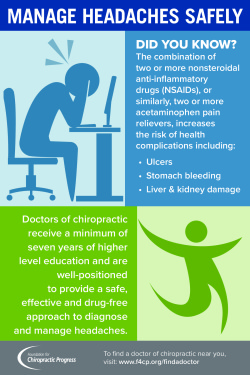Recognizing Nutrition'S Duty In Back Pain Administration: Beneficial Foods And Foods To Stay Clear Of
Recognizing Nutrition'S Duty In Back Pain Administration: Beneficial Foods And Foods To Stay Clear Of
Blog Article
Post By-Duus Hardin
When it comes to handling your neck and back pain, the food options you make can significantly impact just how you feel on a daily basis. Picture being able to alleviate your pain merely by adjusting what you consume. By understanding the role of nourishment in pain in the back management and knowing which foods to integrate or avoid, you can take proactive actions in the direction of a much healthier and much more comfortable lifestyle. The link between nutrition and back health and wellness is a lot more extensive than you may realize-- let's discover how particular foods can either soothe or intensify your pain in the back.
Significance of Nutrition in Pain In The Back
Nutrition plays a vital duty in handling neck and back pain. Your diet regimen can significantly impact swelling degrees and overall pain degrees in your back. Eating a well balanced diet abundant in nutrients like vitamins D and K, calcium, magnesium, and omega-3 fatty acids can help in reducing swelling and reinforce bones, which are crucial for back health and wellness.
In addition, keeping a healthy weight with proper nutrition can ease stress and anxiety on your back, minimizing the risk of neck and back pain.
Additionally, particular nutrients like antioxidants located in vegetables and fruits can assist combat oxidative anxiety and promote recovery in the body, consisting of the back muscles and spine.
On the other hand, consuming extreme quantities of refined foods, sweet drinks, and harmful fats can contribute to inflammation and weight gain, aggravating neck and back pain.
Foods to Consume for Back Wellness
To support a healthy back, including nutrient-rich foods right into your daily meals is essential. Consisting of foods high in antioxidants like berries, spinach, and kale can help in reducing inflammation in your back, reducing pain and pain. Omega-3 fatty acids located in fatty fish such as salmon and mackerel have anti-inflammatory homes that can benefit your back health and wellness.
In addition, taking in nuts and seeds like almonds, walnuts, and chia seeds provides necessary nutrients like magnesium and vitamin E, which support muscular tissue feature and decrease oxidative tension. Including lean proteins such as poultry, turkey, and tofu can help in muscle repair and maintenance, promoting a solid back.
benefits of chiropractic care during pregnancy fail to remember to include dairy products or strengthened plant-based options for calcium to sustain bone health and wellness. Last but not least, moisturize with plenty of water to keep your back discs moisturized and functioning efficiently. By including these nutrient-dense foods in your diet, you can nurture your back and support total spinal health and wellness.
Foods to Stay Clear Of for Back Pain
Opt for staying clear of processed foods high in sugarcoated and trans fats when seeking remedy for neck and back pain. These kinds of foods can add to inflammation in the body, which might worsen neck and back pain. Say no to sugary treats like candy, pastries, and sugary drinks, along with fast food things like burgers, fries, and fried poultry that are usually loaded with trans fats.
Additionally, steer clear of foods consisting of high levels of polished carbohydrates, such as white bread, pasta, and breads, as they can increase blood sugar level levels and potentially worsen swelling in the body.
It's also important to limit your consumption of foods high in saturated fats, like red meat and full-fat dairy items, as they can contribute to swelling. Refined foods like deli meats, chips, and packaged treats are typically high in saturated fats and ought to be consumed in small amounts.
Suggested Resource site
To conclude, taking note of your diet regimen and making clever food choices can have a significant influence on taking care of back pain. By incorporating nutrient-rich foods like berries, fatty fish, nuts, and lean proteins, and avoiding processed and sweet products, you can help reduce swelling and support in general back wellness. Keep in mind, what you consume plays a critical function in just how you really feel, so make sure to prioritize your nutrition for a much healthier back.
